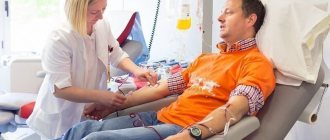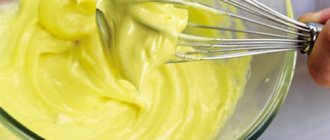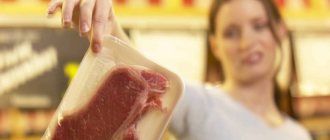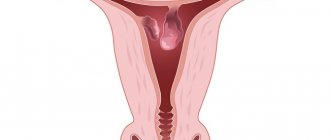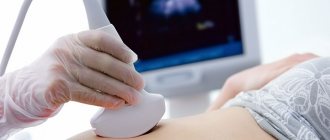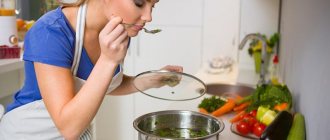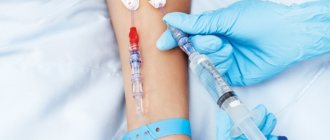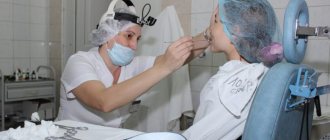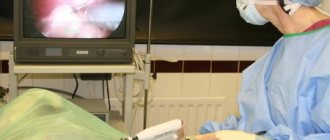The operation to remove appendicitis in surgical practice is considered simple. But it should be remembered that the risk of complications is always present. To avoid the development of peritonitis and any postoperative situations, the patient must follow all the doctor’s instructions and adhere to a special diet. It is proper nutrition after removal of appendicitis that helps normalize intestinal motility, start metabolic processes, and increase regeneration.
Why do you need a diet after appendectomy?
After intestinal surgery, the body’s processes of absorption of nutrients from food are disrupted, which often leads to protein deficiency and decreased tissue repair. The last point is especially important after surgery, since diet directly affects the rate of skin scarring and the patient’s overall health.
Following a diet allows you to:
- start the intestines in a gentle mode (absence of solid food particles, acids);
- restore the original metabolism within 3-5 days;
- increase immunity and saturate the body with missing microelements;
- improve the regenerative functions of the body, weakened after surgery.
According to the requirements of the Ministry of Health and the experience of doctors, the diet after appendicitis is divided into several successive stages:
- early postoperative (first 3 days);
- postoperative (one week after the intervention);
- restorative (within a month).
Diet for 2-3 days
In the area of postoperative sutures, gradual contraction, tissue healing and formation of a primary scar occur. Internal sutures made from catgut are also partially dissolved.
The main objective of a therapeutic diet is to replenish nutrients in the body, primarily necessary for tissue regeneration, with maximum functional rest for the digestive tract. It includes a number of principles that must be adhered to:
- Eat small meals at least 6 times a day.
- Exclusion of solid food; the consistency of all food products should be in the form of puree.
- Food should not have an irritating effect on the area of the postoperative wound in the intestine, therefore spicy, sour, fried or smoked foods, pickles, and marinades are excluded.
- Food products are excluded from the menu, the consumption of which can increase the processes of gas formation in the intestines - legumes, cabbage, radishes, radishes, dairy products.
- The temperature of the food should not be too hot or cold, so as not to lead to the development of an inflammatory process in the area of postoperative sutures; the optimal food temperature is about 30-35º C.
The list of what you can eat after appendicitis is expanding. And grated dishes are added to liquid products:
- Chicken broth with small, well-cooked pieces of chicken meat.
- Puree of boiled zucchini or pumpkin.
- Mashed potatoes are allowed in small quantities, since potatoes contain a lot of starch, which can cause increased gas formation in the intestines.
- Boiled chicken (fillet), the meat is ground to a puree.
- Natural yogurt is a fermented milk product that, unlike whole milk, does not cause increased gas formation and helps normalize normal intestinal microflora - natural yogurt without additives and dyes is best suited for this.
Typically, nutritional monitoring in a hospital setting after surgery is carried out by medical personnel. However, these recommendations should be known to relatives or friends of the patient who bring food to the hospital.
Prohibited Products
The diet after appendicitis strictly prohibits foods that can negatively affect the human body. Let's start with the fact that the removal operation involves a banal incision in the groin area, which should heal within 1-2 weeks (depending on the age and regenerative functions of the body). At this time, it is not permissible to consume the following types of foods:
- fried fish, vegetables, meat (hard on the stomach);
- preservatives, pickles;
- fatty foods (vegetable and animal fats are taken into account, including lard and homemade dairy products);
- hot seasonings and spices (provokes a lack of fluid in the rectum, which can lead to constipation);
- alcohol, carbonated products, baked goods (stomach bloating and additional stress on the seam);
- grapes, legumes, cabbage (provoke fermentation and bloating);
- sour and smoked foods that require increased work of the intestines and stomach for absorption.
Let’s say right away that a month after the operation, you can gradually return to your usual diet if tests show a normal healing process in the body. We categorically do not recommend a sudden change in diet for 2 reasons:
- you are already accustomed to a “lenten” diet and have reorganized your intestinal motility;
- an excess of new, often heavy foods can lead to heaviness, severe bloating and problems with stool.
Nutrition after appendectomy: first month
It is important to follow a therapeutic diet for a month after laparoscopy. Food should be consumed only in boiled, steamed, liquid and pureed form. Frequent small meals up to 6 times a day, drink at least two liters of water per day.
Diet after appendectomy, what you can eat
- First courses are presented in the form of soups and broths. They are cooked in vegetable broth or water. You can add greens, potatoes, carrots, onions, zucchini, and beets to the soup. The vegetables must first be washed and grated.
- Second courses are prepared from boiled and stewed vegetables. It could be mushrooms, vegetable omelettes, casseroles. Meat and fish are taken only from low-fat varieties.
- Buckwheat, oatmeal, and rice porridge have a good effect on intestinal motility. They should be boiled in water or diluted milk.
- Fermented milk and dairy products are welcome: kefir 1%, yogurt, skim milk and cottage cheese.
- For sweets, you are allowed to eat dried fruits and marshmallows.
- Fruits and berries include citrus fruits, raspberries, strawberries.
- Decoctions, compotes, jelly, fruit drinks, green tea.
After a month of therapeutic nutrition, you can slowly move on to your usual food.
Nutrition after appendicitis surgery: sample menu
- the first breakfast begins with rice porridge cooked in water, yogurt, green tea;
- second breakfast: dried fruit compote.
- for lunch, the patient can be treated to meat broth, steamed meatballs, oatmeal with water, fruit jelly;
- afternoon snack: rosehip decoction;
- For dinner you can serve an omelet steamed with buckwheat porridge and green tea.
- Before going to bed, drink some jelly.
It is important to limit salt. A patient after appendicitis surgery should consume no more than 8 grams of salt per day.
Let's look at recipes for individual dishes that you can eat after surgery.
Chicken broth
To prepare you will need:
- lean pieces of chicken fillet;
- grated carrots;
- finely chopped onion;
- a little salt;
- greenery.
Place all ingredients except herbs into boiling water and cook for an hour. Then strain, add herbs, and grind the chicken in a blender. Can be served together: broth with meat puree.
Meatballs with rice
You will need:
- beef 100 gr;
- rice 20 gr;
- a little salt.
The meat must be twisted through a meat grinder 2-3 times. Rinse the rice thoroughly under running water, then boil. Combine the minced meat with rice, add a little salt, and mix. Stick on the meatballs and steam for 30-40 minutes.
Cottage cheese casserole
For preparation it is used:
- 300 g of cottage cheese;
- egg;
- 30 grams of semolina;
- 10 g sugar.
Mix everything. Grease a baking dish with a piece of butter and pour the curd mixture into it. You can decorate the top with fruits or berries approved by your doctor. It is recommended to bake at 200 degrees for 25 minutes.
Fruit jelly
- Any fruits or berries permitted by your doctor;
- 600 ml water;
- 30 grams of starch.
Add peeled and chopped fruits to boiling water and cook for 10-15 minutes. Remove the cooked fruit and chop it. Dilute starch separately in water. Add fruit puree and starch to the compote and mix well. Kissel is ready to eat.
What not to eat after appendicitis surgery
There is a list of foods that should absolutely not be consumed after appendix surgery. First of all, you should avoid fried, fatty, spicy, salty, and smoked foods for two weeks. Also, foods that contribute to gas formation should be excluded from the diet.
You should refuse:
- ketchup;
- potatoes;
- fatty and salty fish;
- mushrooms;
- tomatoes;
- borscht;
- fish soup;
- homemade milk;
- cheese;
- cabbage;
- jam;
- sweets;
- condensed milk;
- grapes;
- grenade;
- fast foods;
- watermelon and melon.
Food should be fortified and beneficial for the body. A complete list of prohibited products should be prescribed by a specialist.
In case of violation of the diet or in case of overeating, in order to reduce unpleasant symptoms from the digestive tract, it is recommended to take enzyme preparations (pancreatin, gastenorm forte, panzinorm, normoenzyme, etc.).
Diet for the first three days
Postoperative recovery often takes 1 to 3 days. For the first 24 hours, any food intake is contraindicated, but minor drinking and rinsing the mouth is allowed. This is due to the fact that during the process of anesthesia leaving the body it begins to dry out greatly, and the weakened patient needs to be nourished with something. Immediately eliminate tea, yogurt, sparkling water or juice - only purified mineral water without gases and salts. The second reason is a violation of the integrity of the cecum, which needs to recover on its own. Any mechanical actions for her at this stage are dangerous and are fraught with re-opening of the wound, and sometimes with bleeding.
On the second day, food intake is allowed, consisting only of liquid foods in small quantities:
- weak chicken broth;
- rice water;
- liquid jelly made from dried fruits with minimal sugar content.
On the third day after the operation, the body of a healthy person has recovered enough to eat vegetable purees and cream soups, and oatmeal. But don't forget to follow the restrictions:
- all products are cooked only by steaming or stewing (no frying, seasonings, or spices);
- mandatory heat treatment;
- complete absence of solid particles (grind everything by hand or in a blender).
At this stage, beneficial substances begin to enter the body, accelerating metabolism and provoking enhanced regeneration. Food intake is carried out in doses, no more than 3 times a day in small portions. Thus, the patient is less likely to have to defecate, experiencing awkwardness and acute pain in the right side. And don’t forget that the seams greatly constrain your posture, forcing you to move in a bent state.
"Honey Spas" from parasites and worms
I used to be like a sleepy fly all the time: my head hurt, I felt weak, I couldn’t sleep in the evening. and wake up in the morning. It’s strange, but my gynecologist advised me to try Honey Spas, suspecting infection with parasites due to constant inflammatory “female-like” ones. I took 2 courses, and now the energy is pouring out of me! And the gynecological problems went away too! Anna, 26 years old, PR manager, Moscow
Read more>>>
Basic recommendations
Appendectomy is one of the most common operations, during which the appendix of the cecum is removed. With timely surgical intervention there is no danger to life.
After surgery, during the recovery period, it is important to follow a diet, thanks to which the body will recover faster and complications will not arise. You can only eat certain foods, and you also need to follow useful recommendations.
Nutrition rules
- On the first day after surgery, you should not eat or drink. As a rule, patients themselves do not want to eat, but there are exceptions.
- The first meal should be small in volume, with only liquid porridge or light vegetable soup allowed.
- You will need to eat in fractions, that is, you need to eat small portions up to six times a day.
- Food should not be cold or hot. It is best absorbed when warm and does not burden the intestines.
- To reduce the risk of suppuration of the sutures, you need to avoid adding sweet and starchy foods to your menu for at least half a month.
- It is best to drink only water during the diet, and it should not be mineral or carbonated. All drinks should be at room temperature if you do not want to harm the weakened body.
- Under no circumstances should you drink alcohol during rehabilitation. Moreover, this ban applies not only to the diet period after appendicitis removal. A person should forget about alcohol for at least three months after surgery.
- Salt should be banned after the appendix is removed. At least for the first week you should completely abandon it. Then it can be added little by little, but still it should not be abused.
- When the operation is complicated or appendicitis was accompanied by peritonitis, the patient must follow a special diet twice as long. That is, instead of two weeks, the period increases to a month. You should forget about alcohol for six months.
You can also advise the patient to drink plenty of fluids. You need to drink at least two liters a day, while clean water, herbal decoctions, compotes and tea are allowed.
Juices and sweet water are not recommended, as they contain harmful substances that negatively affect the gastrointestinal tract. The right decision would be to give up coffee, because it can worsen the patient's condition.
Otherwise, it’s worth knowing exactly what you can eat after appendicitis. If the patient does not follow the recommendations for at least the first week, he can significantly worsen the intestinal condition. At best, recovery will simply be delayed, although this could be prevented by following the right menu.
One week after surgery
According to statistics, a person remains in hospital for no more than 7 days after surgery. But during this time, the body’s activity is greatly reduced due to the lack of stress on muscle tissue. As a result, digestion processes slow down. During the first week, the body gets used to the “lazy” diet, which does not require active work of the stomach and the secretion of gastric juices. Therefore, it is extremely important to rearrange the diet in such a way as to launch the usual processes, but not drive the body into a dead end. The latter in 90% of cases results in constipation: the peristalsis of the intestinal walls is disrupted and it still cannot work in the same rhythm.
The diet after appendicitis in the second and third weeks should include foods rich in fiber (cereal soups, baked vegetables and fruits, dried fruits soaked in water, low-fat homemade yogurt). The body has to turn on physiological processes, but it does this according to the principle of a rusted bearing into which oil is added: at first it is difficult, but then minimal force is applied and lubricating fluid is added at the same time. As a result, after 3-4 days of the diet (the emphasis is still on liquid food without solid particles), the person already gets used to it normally and can go to the toilet without any problems, and this is extremely important.
Prevention of vitamin deficiency
An important fact: after surgery and a lack of microelements, the body begins to intensively deplete its own reserves of nutrients, which provokes vitamin deficiency. To avoid this, start slowly adding lean meats and Omega-3-rich fish to your diet. Only boiled or steamed product is taken, which retains its benefits after cooking. Be sure to turn the fiber into meatballs or patties, reducing stress on the intestines.
To avoid overloading the gastrointestinal tract, eat little and often, no more than 200 grams at a time. For children, it is better to cut the portion in half. And be sure to drink up to 2 liters of fluid to speed up recovery.
Duration of diet after surgery
The duration of the patient's diet is determined by the attending physician (usually two to four months), which must be strictly observed.
Basic recommendations on how to end the diet:
- Do not immediately start eating all prohibited foods. It is necessary to introduce such products into your diet very gradually.
- Legumes should be eaten one month after surgery.
- Sweets are allowed to be consumed only after the stitches have completely healed.
- It is not allowed to sharply increase the number of calories taken.
Try to adhere to all the doctor’s instructions on the rules of therapeutic nutrition, and the period after surgery will pass without complications. Be very careful about your health.
Next 2 weeks after surgery
10-14 days after removal of the appendix, you can systematically return to your usual diet, while observing a strict set of rules regarding healthy eating. Remember that "forbidden foods" are still not available, so the emphasis is on the following components:
- Boiled and steamed vegetables. You can also eat stewed and baked foods;
- Dietary meats and fish, pre-heat-treated. This includes rabbit, turkey, veal, cod;
- Eggs in the form of an omelet (no more than 2 eggs per week, pure white is quite difficult to digest);
- Lenten vegetable soups and mousses;
- Dried fruits and berries in small quantities;
- Herbal and classic weak teas.
As you can see, this list does not include alcohol, flour products, fried or smoked products. You can introduce them into the diet only in the second month of recovery and gradually.
If you eat right and do not break your diet, already in the third week you will be able to fully move, turn around and lead a more or less active lifestyle. In this way, the body will get back to work faster and begin to secrete more useful microelements for the regeneration of the intestines and digestive tract.
Complex remedy for hemorrhoids Rectyn
Suppositories and capsules for quick relief of bleeding, pain and itching. Returns elasticity to the veins and prevents the recurrence of hemorrhoids!
Read more>>>
Authorized Products
Therapeutic nutrition after appendectomy is expanded gradually. The patient must receive the required amount of proteins that are needed for cell construction and regeneration.
It is important that complex carbohydrates are present in food, but in a processed form: they create a glycogen depot in the liver, which supports its disinfecting function.
Food should be easily digestible, not overload the digestive organs and smoothly activate the gastrointestinal tract. Also, the diet should be rich in vitamins, especially ascorbic acid, which stimulates the immune system and speeds up the healing process.
List of permitted products:
- yesterday's bread or dried bread, dry cookies from the 3rd day;
- lean meats and poultry from the 3-4th day, twice through a meat grinder or pureed, soufflés, meatballs, steam cutlets, without connective tissue membranes and tendons (beef, veal, skinless chicken, rabbit, turkey);
- low-fat varieties of skinless fish, mainly river fish, as a substitute for meat dishes;
- slimy and viscous porridges (semolina, rice, oatmeal, pureed buckwheat);
- weak strained broths from chicken and lean meat;
- slimy soups made from oatmeal and semolina, you can add cream or a milk-egg mixture, from the 4th day - pureed vegetable soups (from zucchini, pumpkin, carrots, beets, potatoes);
- soft-boiled eggs or steam omelet;
- low-fat milk from days 3-5, pureed cottage cheese, yogurt;
- compotes, jelly, souffle, jelly from sweet berries and fruits;
- honey, jam, sugar;
- unsalted butter, vegetable oils;
- weak tea with milk, decoction of rose hips and medicinal herbs, diluted juices.
Results
Appendicitis is a type of disease where surgery removes only the cause of pain and discomfort. To fully recover, you will have to radically change your diet and lifestyle. Otherwise, you risk ending up on the operating table again for several reasons:
- the appearance or intensification of pain;
- death of the intestinal walls;
- re-suturing;
- attacks of acute peritonitis;
- development of phlegmon or sepsis.
If you value your health, you will have to get over yourself and try healthy eating at least once in your life. It must be said that many continue to follow this diet throughout their lives, having experienced the first positive results.
Marina Maksimova
Gastroenterologist, Candidate of Medical Sciences and editor of articles at gastro911.com. For more than 10 years I have been helping to recover from gastrointestinal diseases.
What can you eat in the first week
During the week after surgery, the processes of wound healing, tissue regeneration and functional restoration of the intestine continue. Therefore, dietary recommendations regarding what to eat after removal of appendicitis at the end of the 1st week are somewhat expanded and include the following features:
- Meals are frequent with small amounts of food (about 5 times a day).
- Food should contain a small amount of plant fiber necessary for the formation of feces - rice and buckwheat porridges are allowed.
- To ensure sufficient protein intake, the diet includes boiled meat - chicken, veal in the form of puree. Boiled fish is also allowed, but only after completely removing the bones from it, which can mechanically damage the intestinal walls in the area of the surgical intervention.
- Fruits and berries are allowed, but only steamed ones.
- The range of fermented milk products is expanding, but they should be low in fat.
- To restore the functional activity of the intestines and prevent constipation, it is necessary to drink a sufficient amount of fluid (8-10 glasses per day), a third of which is regular drinking water. It is recommended to consume the liquid half an hour before meals and an hour after it.
Important! An important condition for nutrition in the first week after appendectomy is thorough, leisurely chewing of food.
What changes occur after surgery?
In case of infection, the causative agent of the disease or damage, the appendicitis begins to become inflamed and swelling occurs, followed by pain. If acute appendicitis is confirmed during the examination, the patient is sent for an appendectomy. In this way, the inflamed appendage is removed. This type of surgery is safe and allows the body to quickly recover. Removal occurs through puncture using specially designed instruments. There is no clear opinion regarding the need for appendicitis, so two versions of its functionality have been defined:
- Remained in the role of a rudiment.
- It is part of the cecum (appendage), which takes part in the formation of immunity in the housing and communal services and prevents the activation of pathogenic bacteria.
Before and after appendectomy
After appendicitis is removed, a person feels virtually no changes in well-being. The main thing is to promptly seek medical help if acute cutting pain occurs. After all, untimely intervention can lead to a serious complication - peritonitis. It is also very important to follow a diet for a month after the operation. The doctor must consult the patient about the specific diet during the recovery period. Special nutrition is required in order to create favorable conditions for tissue regeneration. Without the use of diet therapy, the recovery period is significantly delayed.
Reference! Peritonitis is a serious illness characterized by pronounced inflammation of the layers of the peritoneum (namely visceral and parietal).
Surgery to remove appendicitis
Possible complications
If, during an exacerbation of appendicitis, the patient was not provided with timely surgical treatment, then various complications may occur.
| What to expect? | Brief description of the complication |
| Appendix rupture | Peritonitis is how medicine defines a rupture, which is accompanied by inflammation. This process poses a threat to human life, so urgent surgical intervention is required. |
| Phlegmonous type of appendicitis | The inflamed appendage becomes covered inside and outside with purulent plaque. The danger is that fluid with the presence of pus may accumulate in the abdominal cavity |
| Gangrenous inflammation | Blockage of the vascular network may occur in the appendix, which leads to the development of peritonitis |
Nutrition after five days of postoperative nutrition
On the fifth day, you can add fermented milk products to the porridge menu. They are easily digestible and have a positive effect on the stomach. The basis of fermented milk products should be homemade yoghurts with bifidobacteria, low-fat kefir, and cottage cheese (must be unsweetened). The patient will have bed rest for a long period of time, so the possibility of constipation cannot be ruled out. Some medications also cause a similar problem. To prevent constipation, you should consume as many fiber-rich foods as possible. It is found in the following products:
- Baked apples.
- Rosehip decoction.
- Boiled carrots.
Boiled carrots are one of the allowed foods during the postoperative period
Advice! Before making changes to the postoperative menu, it is recommended to consult with a leading physician in order to avoid complications.
To quickly restore the body and digestive system, beta-carotene is needed. It is found in large quantities in pumpkin. Other useful elements contained in this vegetable can speed up metabolic processes, have a positive effect on blood clotting, and increase the level of absorption of products. During the diet, it is recommended to consume pumpkin in the form of puree soup or, alternatively, in the form of porridge.

